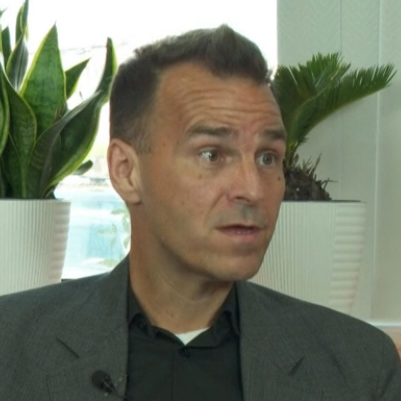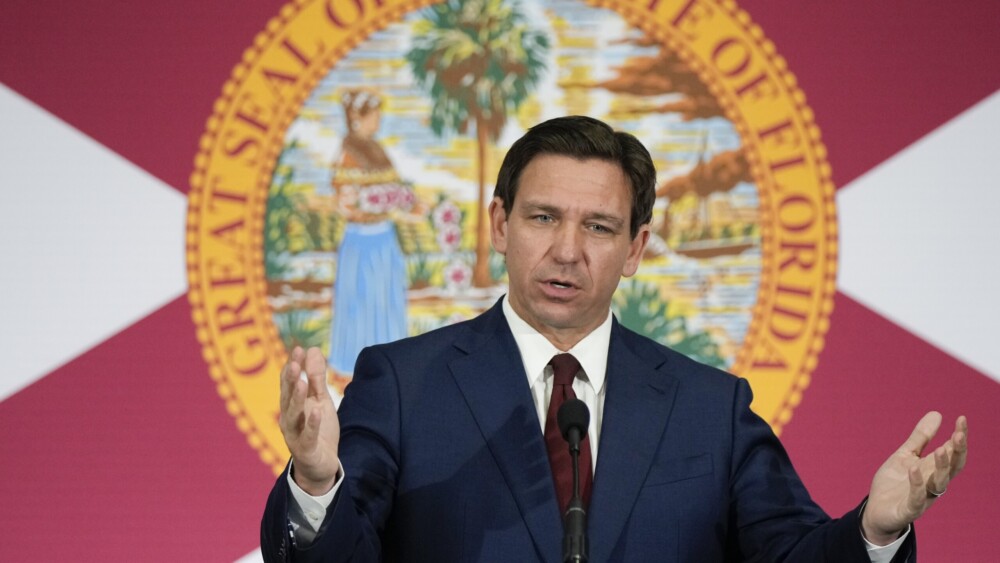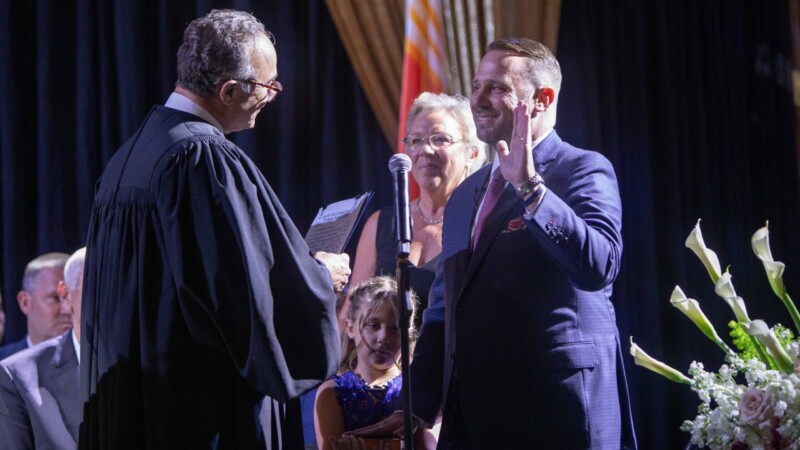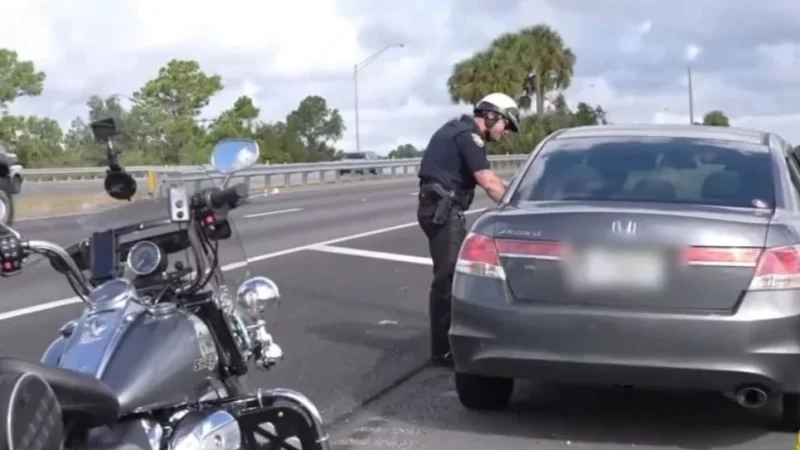
How much is a human life worth?
We can look at that question in a number of ways.
Taking a broadly sentimental tack, we can say that all life is precious beyond reckoning, that life itself is a miracle, that all of the buildings and cars and airplanes and powerplants and so much else that makes up the material product of human endeavor simply isn’t worth one beating heart, one set of blinking eyes.
It might feel good to say that.
But a closer look at society and what it values tells us that isn’t true.
There comes a point when someone’s life insurance may be worth the rest of their earning power. Or when someone’s medical bills — past, present, and future — far exceed any number they can file as income.
In other words, it is possible, if distasteful, to assign a cash value to human life.
People do it all the time.
Including Gov. Ron DeSantis.
Earlier this month, the governor was asked about what has been called the “Free Kill” bill (HB 6017). The legislation, sponsored by Jacksonville’s Clay Yarborough in the Senate, allows adult children to sue for pain and suffering due to wrongful deaths caused by medical malpractice on their parents.
Florida, which is the 7th most likely state in the country to find patients victimized by med mal, already was the only state to have this sadistic statutory wrinkle before the Legislative Session started. In 15 years, more than 16,000 cases are reported — and as you might surmise, victims and families gave up on a lot of others in despair over no mechanism for recovery.
And in that brutal context, the governor said he’d make sure the Free State of Florida was the one where it was free for doctors to kill their patients with impunity afterwards.
Often DeSantis plays dumb about bills that haven’t yet been sent over to him by the Legislature.
Not this time.
He made it clear in comments to reporters that when it came down to the question of whether family members should have the right to collect money when a doctor is negligent, there is an economic value to life, and that he is better situated to suss that out than a jury – an ironic position for an Ivy League lawyer to take.
By promising to veto the bill, he said he’d to stop “jackpot justice” that strikes him as being like “winning the lottery,” in part because the final legislation didn’t put caps on damages that could be received in what he expects to be a “flood of lawsuits” if people have the recourse.
In the words of Mr. Warmth:
“I know there have been people that have been victimized, have family members, and it’s a really, really sad thing,” DeSantis said. “But I also know you have to look at the global view. What is it going to do for the overall access to care prices, the willingness of physicians to come here? And that was very clear to me in speaking with folks.”
Which folks did he speak to?
Probably not the survivors of family members’ medical malpractice, which can take many forms. Something like a surgery gone wrong, or even being given the wrong heart pill in the hospital.
The governor’s position is ironic given his bluster about freedom in certain contexts, and about championing “disfavored” groups. For example, he signed an anti-swatting bill recently because “conservative media personalities” were dealing with fake 911 calls, as he told Fox News.
“These are not victimless crimes,” he said about these pranks.
Indeed, they are not. The legislation contemplates felony punishments for multiple calls, as well as for calls where people are injured, killed, and maimed because of false reports.
Those lives have value. And the state looks to protect it.
There’s also a civil liability provision — restitution to any victim.
There are no caps on potential damages there.
In that sense, there is a greater value placed on the life of a “conservative media personality” than there is on someone taking their last ragged breath on an operating table, and the family left to pick up the pieces after the doomed patient flatlines and finds out what the next life is all about.
The only way to go after a doctor or a hedge fund that owns a hospital is to hope to God that they place a fake 911 call on you after your loved one’s body is cold and rendered into ash or buried in the ground.
But they don’t need to do that.
The damage is already done.
Much of 2025’s legal environment is predicated on asserting that certain people don’t have rights, in scenarios lifted out of post-modern edits of Franz Kafka.
Yet there is nothing more Kafkaesque than losing the most important person in the world to you because of a sawbone’s blunder and then being told that it doesn’t matter because it would inconvenience the medical lobby.
In that scenario, you are literally Franz’s cockroach.
And the big, white, lifted-heel rain boot about to crack your back is the jackboot of the state, with a squeaky-voiced potentate calling up from above, gleefully telling you that when it comes to your loved one’s injustice, there is a price too high for compensation.
And in the Free State of Florida, doctors are free to kill them by negligence, because protecting their industry means much more to the governor than protecting the people subject to the whims of a late-capitalist hellscape and a lame duck who protects the capital class with the ferocity of Cerebus.







